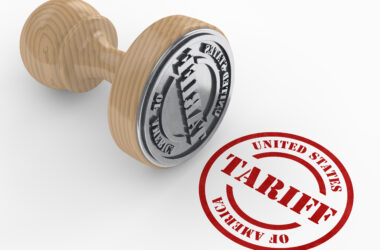By Eric L. Johnson
The Corporate Transparency Act requires many companies, including many NIADA dealer members, to report information about their beneficial owners to the U.S. Department of Treasury’s Financial Crimes Enforcement Network (“FinCEN”).
In September 2022, FinCEN issued the final beneficial ownership information (“BOI”) reporting rule, which describes who must file a BOI report, what information must be reported, and when a report is due.
Effective Jan. 1, 2024, the rule requires certain domestic and foreign companies doing business in the U.S. to report their BOI to FinCEN.
For auto dealers, the first critical question is whether the CTA applies. While there is a long list of exempt entities that do not need to file, only the exemption for “large operating companies” would be potentially applicable to dealers.
This exemption applies to entities with more than 20 full-time employees, a physical office presence in the U.S., and more than $5 million in gross receipts or sales on their most recent tax return. If your dealership doesn’t qualify for this exemption, then you will need to know when to file, what to file and the penalties for failing to file.
If your dealership was formed or registered before Jan. 1, 2024, it must file its initial BOI report by Jan. 1, 2025. Reporting companies created or registered on or after Jan. 1, 2024, and before Jan. 1, 2025, must file their initial BOI report within 90 calendar days after the time the company receives actual notice that its creation or registration is effective, or after a secretary of state or similar office first provides public notice of its creation or registration, whichever is earlier. There are also requirements to file an updated report if the submitted information changes.
Required information to be reported in the initial BOI report about the reporting company includes: (a) its full legal name; (b) any trade names, “doing business as”, or “trading as” names; (c) the current street address of its principal place of business if that address is in the U.S., or, for reporting companies whose principal place of business is outside the U.S., the current address from which the company conducts business in the U.S.; (d) its jurisdiction of formation or registration; and (e) its Taxpayer Identification Number.
Required information to be reported in the initial report about each beneficial owner include: (a) the individual’s name; (b) date of birth; (c) residential address; and (d) an identifying number from an acceptable identification document such as a passport or U.S. driver’s license, and the name of the issuing state or jurisdiction of identification document.
The penalties for filing false beneficial ownership information or for failure to report or update beneficial ownership information are: (i) civil penalties of $500 for each day that the violation continues or has not been remedied; and (ii) a criminal fine of up to $10,000, imprisonment for up to two years, or both.
Finally, note that a federal district court in Alabama recently held the CTA to be unconstitutional “[b]ecause the CTA exceeds the Constitution’s limits on the legislative branch and lacks a sufficient nexus to any enumerated power to be a necessary or proper means of achieving Congress’ policy goals . . .” and granted an injunction against enforcement of the CTA to the plaintiffs.
In response to the decision, FinCEN posted a notice to its website which notes that the Department of Justice filed a Notice of Appeal March 11, 2024, and that FinCEN will continue to enforce the CTA against all non-exempt entities other than the plaintiffs in that action.
Those exempt plaintiffs include entities that were (as of March 1, 2024) members of the National Small Business Association. FinCen has issued some helpful information, including FAQs, and we can provide detailed information about the CTA.
Eric L. Johnson is a partner in the Oklahoma City, Okla., office of Hudson Cook, LLP. Eric can be reached at (405) 602-3812 or ejohnson@hudco.com. This article is provided for informational purposes and is not intended, nor should it be taken, as legal advice.










